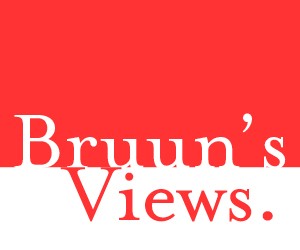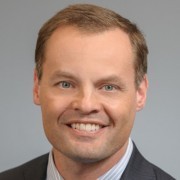Scott Bruun: The Challenges Legislative Democrats Face in 2015
Wednesday, December 31, 2014

Yes, they do.
The event, “Legislative Preview: What to Expect in 2015”, was a recent forum hosted by the Portland Business Alliance at the Sentinel Hotel. And the “they” was a panel of four legislators: state senators Betsy Johnson and Chuck Thomsen, and state representatives Tobias Read and John Davis. Two Democrats, two Republicans; both chambers of Oregon’s legislature.
The panel conversation was energetic and wide-ranging. From the audience’s perspective, it was nice to see the four lawmakers largely agree on the major opportunities and challenges facing the legislature in 2015. Among the agreed-upon issues was the need for serious transportation funding, and acknowledgement that we cannot rely on the federal government to help on road and bridge issues.
Other areas of agreement included the need for better support of higher education; as well as some voiced trepidation about the ability to financially sustain new full day kindergarten and child care programs proposed in the governor’s budget. The panel was also aligned, both Democrats and Republicans, in suggesting that preemptive legislative action would be needed, less certain localities (can you say “City of Portland”) run amok on workplace issues like paid sick leave, minimum wage and paid paternity leave.
In all a fairly centrist, bipartisan and common sense agenda. And yet an agenda, cautious as it may seem, which will require real courage to achieve.
Oregon is, de facto, a one-party state. In the last election, most of the country said ‘no’ to the endless class-warfare populism and “we’re all permanent victims” screed coming from congressional Democrats. America also said ‘no’ to the president’s flat-line economic programs and dysfunctional healthcare bureaucracy.
But not in Oregon. In Oregon we double-downed. We not only re-elected an ideologically-driven Democrat senator and an ethically-challenged Democrat governor, we also expanded Democrat majorities in both chambers of Oregon’s legislature.

In other words we’ve moved even further left, unlike the rest of the country. With this, there will be tremendous pressure on elected Democrats in Oregon to shoot for the “progressive” moon. We will see proposed legislation in Salem that would reduce energy choices and increase energy costs under the guise of “environmental responsibility.” We’ll see bills that would reduce economic freedom under the guise of “fairness” and reduce healthcare choices under the guise of a “shared-responsibility model”. False choices all.
Oregon’s more moderate and business-oriented legislative Democrats, ones like senators Betsy Johnson and Arnie Roblan, and representatives Tobias Read and Jeff Barker, will face tremendous pressure to toe-the-line. Pressure from their party’s caucus leadership; and pressure from the special-interest groups that underwrote Democratic victories in Oregon. In just one example, it may prove quite difficult for Democrats to resist California’s hedge fund billionaire Tom Steyer and his carbon tax holy grail. For Steyer, after all, Oregon’s state senate may yet prove to be the best money could buy.
In his Pulitzer Prize-wining book, “Profiles in Courage”, John F. Kennedy wrote of eight U.S. senators who demonstrated political courage despite great risks. In many of Kennedy’s examples, the greatest courage was shown by those who stood up to the perceived interests of their own party. They stood up even at the risk of partisan censure, loss of power, and even loss of elections. As these giants of the senate surely knew, standing with popular opinion and against the opposing party is no sign of greatness; it’s just politics. What does separate opinion-following politicians from courageous statesmen is, often, saying ‘no’ to your own when your own are wrong.
“Courage is rightly esteemed the first of human qualities” Winston Churchill wrote, “because it is the quality which guarantees all others.” Oregon would be well served by a few legislative Democrats who have the courage to demonstrate all those human qualities, including the quality of leadership, by standing against their party when their party is wrong. Toward this, those leaders will have ample opportunity in 2015.

Related Articles
- Scott Bruun: Education, Priorities, and the Governor’s Budget
- Scott Bruun: Federal Budget Politics Put Oregon Fishermen At Risk
- Scott Bruun: How Ron Wyden Can Lead The U.S. Senate
- Scott Bruun: Oregon Should Say No to Open Primary
- Scott Bruun: Portland’s Uber-Control Over Free Markets
- Scott Bruun: Recalling Forward – Peace, Joy and Goodwill
- Scott Bruun: The Beaver State’s Lame Duck
- Scott Bruun: The Importance of Winston Churchill in Portland
- Scott Bruun: The Problem With Congress’s Work Schedule
- Scott Bruun: There’s No More Political Giants in Oregon
- Scott Bruun: To Boldly Go Where No Ad Has Gone Before
- Scott Bruun: Why I’m Thankful For Former Portland Attorney, Kelly Clark
- Scott Bruun: Why the GOP Should Look to Portland’s Urban Conservatives




Follow us on Pinterest Google + Facebook Twitter See It Read It